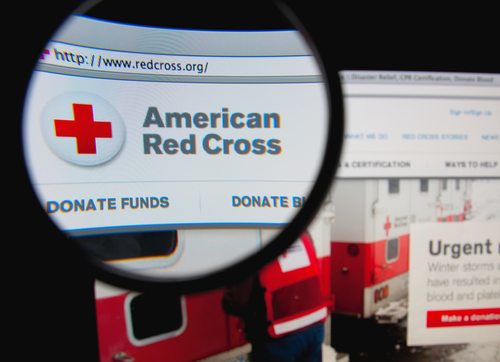
July 9, 2015; NPR, “The Two-Way”
Providing a list of 17 detailed questions and a deadline of July 22nd to the American Red Cross, Chuck Grassley (R-IA) is demanding answers. His concerns have flowed from a recent series of stories published by NPR and ProPublica. Among other things, the series revealed that although the Red Cross had promised to provide permanent homes to tens of thousands of people in Haiti, over the ensuing five years it has built only six.
Grassley has in recent years been involved in overseeing the Red Cross, which is congressionally chartered. In 2007, he sponsored legislation that reformed the Red Cross’s governance structure. Grassley says he is disturbed by the group’s unwillingness to answer legitimate questions, including providing some very basic information like what programs it ran in Haiti, how much they cost, and what they spent money on. Now he is now asking for that information, and while he is at it is, also raising questions about how Red Cross calculates its overhead, which is a question raised earlier by the NPR/ProPublica Collaboration.
Sign up for our free newsletters
Subscribe to NPQ's newsletters to have our top stories delivered directly to your inbox.
By signing up, you agree to our privacy policy and terms of use, and to receive messages from NPQ and our partners.
“I expect them to answer my questions,” he says. “And we’ll get all this information out for the public because I think the donors are entitled to it.”
Jake Johnston, a research associate at the Center for Economic and Policy Research in Washington, D.C., has long been seeking the same kinds of answers. “The Red Cross has been especially difficult to get information from,” Johnston says. “If the Red Cross were to answer these questions, it would shine a light on this black box that everyone’s been asking questions about for the last five years—which is, how this money has actually been spent.”
“One of the big things with the Red Cross Haiti’s response is that they partnered with a lot of other organizations,” he says. “They acted as a donor themselves. And to see how that actually played out, who they partnered with, what the costs associated with those projects were, and how much money actually made it to the ground, that’s the real question mark at this point.”
The questions may in fact be bigger than that. The stance of the Red Cross concerning the NPR/ProPublica investigations of this situation and of its Superstorm Sandy response has been to wait for the tempest to pass and hope it does not leave too much impact in its wake. Grassley is essentially saying, “Not on the public’s dime, you don’t!” Grassley, in this case, has clearly said that the Red Cross must be accountable to donors and that means being able and willing to answer media queries.—Ruth McCambridge













